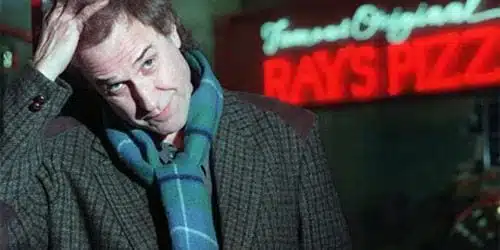
The idea of Ray Davies re-recording more than a dozen classic Kinks’ songs with choral accompaniment suggests two contrasting ideas simultaneously. On the one hand, he wrote great tunes. To have new renditions of some of rock’s most enduring compositions recreated with a full range of harmonies on modern equipment in a first-class studio sounds like a stroke of genius. One can just imagine how sweet lyrical ballads and sentimental odes like “Waterloo Sunset” and “Picture Book” would be.
On the other hand, the thought of softening hard and heavy primitives like “You Really Got Me” and “All Day and All of the Night” seems abhorrent. Ray’s brother Dave previously complained that Ray had already performed “Karoke Kinks” by playing Kinks’ songs without the original band. Davies singing them with the Crouch End Festival Chorus and a large orchestra could fall into that that same trap of denaturing the material.
The results are not as bad as Dave might fear, but not as great as one would hope. The harder rock songs, like the two aforementioned 1964 garage band classics, are camped up a bit rather than played straight. For example, “You Really Got Me” begins with almost a minute of lush church-like a capella vocals, and an electric guitar doesn’t make an appearance until almost two minutes into the song. It’s impossible for a work like this not to rock, but the arrangement does its best to sophisticate the sound and make it something smoother and less raw.
The more literate songs, like “Village Green Preservation Society”, “Days”, “Victoria”, and “Do You Remember Walter” ring out beautifully like a bell clanged on the shire. Davies evokes the grime and glory of 20th century England with a traditional heart and an insightful mind. The choral treatments of these songs brings out the sad and dreamy ironies that happen when “people often change but memories of people can remain”. Songs that concern the past work best when heard through the aural gauze of a large choir, and the instrumental productions do their best to move things along.
Because the more thoughtful songs outnumber the straight-forward rockers, and the harder songs aren’t bad, the album works as a whole. The disc also includes some unexpected selections. Instead of being covering the Kinks’ greatest hits, some chart-toppers are missing (e.g., “Lola”, “Tired of Waiting for You”, “Sunny Afternoon”) and some more obscure tunes (Davies’ “Working Man’s Café” from his solo album by that name and relative Kinks’ unknowns like “Shangri-La” and “Big Sky”) appear.
However, I really can’t think of any songs here that are better than the original versions. Davies’ voice retains its original charms, but it hasn’t improved with age. The fancy-schmancy production is nice, but maybe nice isn’t always appropriate, clever as these are. These present renditions suggest what Davies has always told us. The value of the past lies in understanding what happened on its own terms. That’s why we have “Picture Books” and think of days long ago in rich detail. Not everything needs to be new again.

